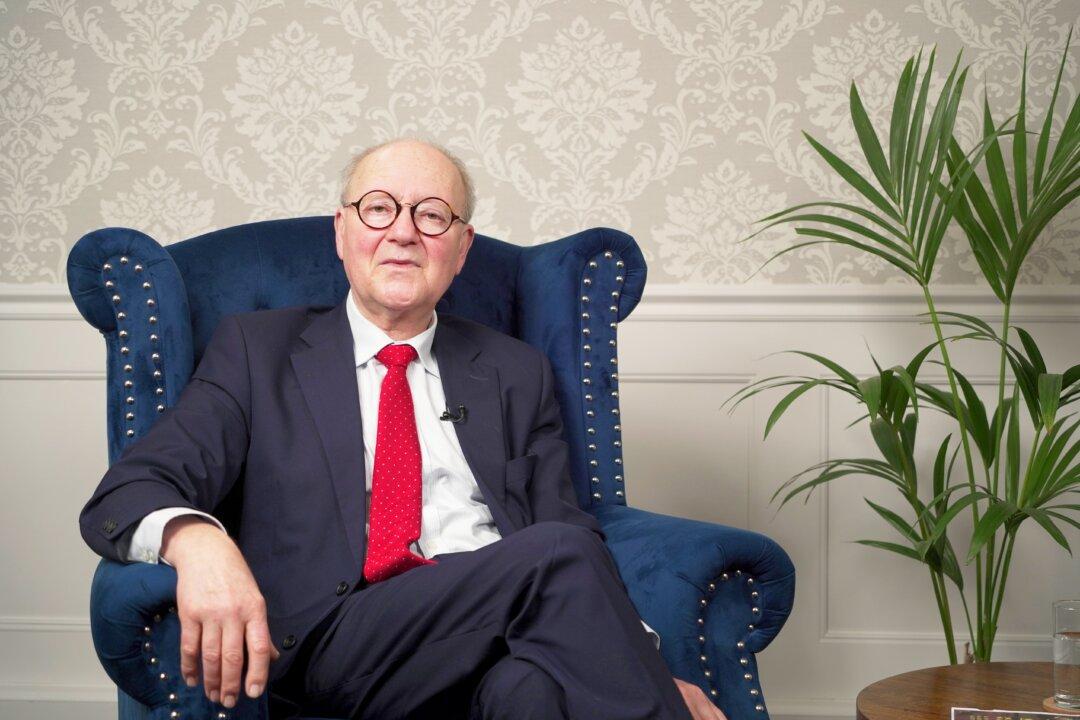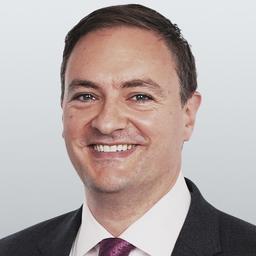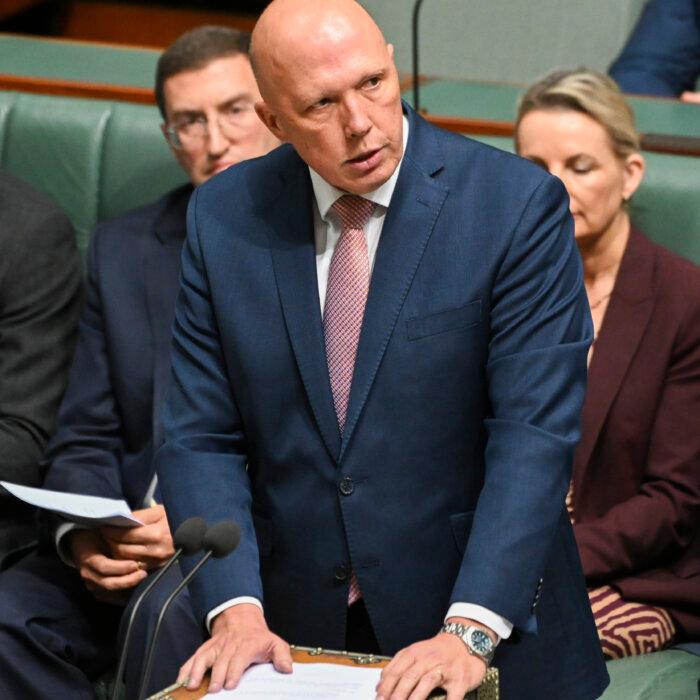The world is at war and Britain needs to reopen its coal mines, says Gwythian Prins, emeritus research professor at the London School of Economics and former advisor to the Ministry of Defence, NATO, and the United Nations.
The professor spoke to Lee Hall, host of NTD’s “British Thought Leaders” programme, about a paper titled “The Music Stops: Net Zero and National Security,” published by Net Zero Watch.
Multimodal, Multi-theatre World War
According to Mr. Prins, we are already “in a world war of many different theatres simultaneously, and many different modes of warfare.”Besides hot wars in Ukraine and Gaza, we are also in a cold war, which is “largely economic,” and grey warfare, which includes a mixture of information, espionage, hacking, and artificial intelligence, the geopolitics expert said.
Grey warfare, or gray-zone war, refers to aggressive actions that are below the threshold of open war. A similar term coined by two Chinese colonels, unrestricted warfare, describes confrontations by any means including terrorism, economic coercion, misinformation, and propaganda.
Among the UK’s global antagonists, the Chinese regime is possibly the “most potent,” Mr. Prins said.
“He found a Chinese researcher working inside the most secure facility, and in the atomic weapons research establishment where we design on nuclear warhead.”
Security Case for Coal
Mr. Prins said the UK needs to turn to coal for both national security and energy security.Calling it “the moment when the music stops,” Mr. Prins said “you cannot do that in the world that we’re now in.”
“We now have to return to a war time way of thinking. So we have to be prepared to make a national security case for critical industries. And steelmaking is a critical industry, as is the electricity grid... which underpins it,” he said.
Mr. Prins said Britain needs to keep its domestic steel production even though it’s cheaper to import them.
“We need to look to our own defences, and those involve making things—weapons. In these islands, crucially, we need to rapidly rebuild our utterly dilapidated Royal Navy. And for this, you need large quantities of steel, and special steel, and it needs to be under our control,” he said.
Mr. Prins said electric arc furnaces for steel production uses “vast amounts of electricity,” and there’s “no rational market case for building electric arc furnaces in Britain whatsoever” because of the country’s uncompetitive electricity prices.
He also argued that coal is needed for energy security because the UK’s gas supply is too dependent on pipes and interconnectors form Europe and shipping from Qatar or elsewhere.
“If any of those things are interrupted, and all of them are eminently interruptible in a war ... we are in a position where we are hugely vulnerable, And so we need to develop national resources, again,” he said.
Net Zero Weapons ‘A Fantasy’
He also said it’s a “fantasy” to build net zero jets, tanks, or warships because of low energy density of batteries.“The Music Stops” contains three essays by Mr. Prins, engineering expert Gautam Kalghatgi, and the historian and broadcaster Guy de la Bédoyère.
Reading from Mr. Kalghatgi’s essay, Mr. Prins explained how batteries would need to be much heavier than the vehicles themselves to provide the same amount of energy.
According to the essay, the maximum take-off weight of an early fourth generation Eurofighter (Typhoon) aircraft is 21,000kg (21 tonnes) and it carries 4,000 kg of fuel with an energy content of 49 megawatt hours.
“A lithium-ion battery pack with the same energy content would weigh around 13 times the maximum take-off weight of the aircraft, assuming an energy density of 180 [Watt-hour per kilogram] for the battery pack,” it reads.
Similarly, a tank of 4.7 tonne will need a 1.2 tonne battery that takes 95 hours to charge if the whole vehicle is covered with solar panels; and a Challenger 2 tank that weighs around 65 tonnes would need a 89-tonne lithium-ion battery pack to provide the same energy content provided by around 1,600 litres of diesel.
3 Fundamental Errors
According to Mr. Prins, evidence do not support the proposition that the emission of carbon dioxide into the atmosphere is uniquely responsible for temperature rises.The proposition, which underpins the case for net zero policies, is based on three “fundamental errors,” he said.
The first intellectual error, he said, is “to believe that it is possible to come to closure on something as complicated as the global climate system.”
Referencing English scientist James Lovelock’s Gaia hypothesis, Mr. Prins said a self-organising complex adaptive system such as the climate has “many, many, many, many feedbacks which interact, some of which we understand and some of which we don’t.”
“But the natural agents that are known to have—in the past, before the Industrial Revolution—driven change in the climate are still present today.”
The natural agents, including Sun activity, volcanoes, and phenomenon such as El Niño, “are massively more powerful in their effect in global climate dynamics than really, frankly, anything that we could do.”
Therefore, Mr. Prins said the hypothesis of carbon-driven global warming is a so-called wicked problem that can’t be translated into “a set of actionable actions, which reduce to a set of bureaucratic formulae as to which sorts of motorcars are allowed to drive in the city of London.”
The second intellectual error, Mr. Prins said, is the reliance on modelling to forecast climate change.
What models produce are projections, not predictions, but “the number of politicians who understand that difference is not great,” he said.
“But you cannot build actionable policies on computer projections, because they are not predictions of what’s going to happen in the future. They are not. Why? Back to the first error, because you’re trying to model a wicked problem.”
Mr. Prins said evidence can only tell that “there may be an issue to do with carbon dioxide,” but the risk ranks “pretty low” compared to other security risks we are facing.
He also pointed to evidence that link increased carbon dioxide in the atmosphere to more biodiversity.
Referencing U.S. political scientist Roger Pielke’s research, Mr. Prins said the third error is that the low-end range models were all abandoned in the work used by the U.N.’s Intergovernmental Panel on Climate Change (IPCC), meaning “all the modelling work has gone from a baseline which is unreal and unrealistically high” in the past 15 to 20 years.








